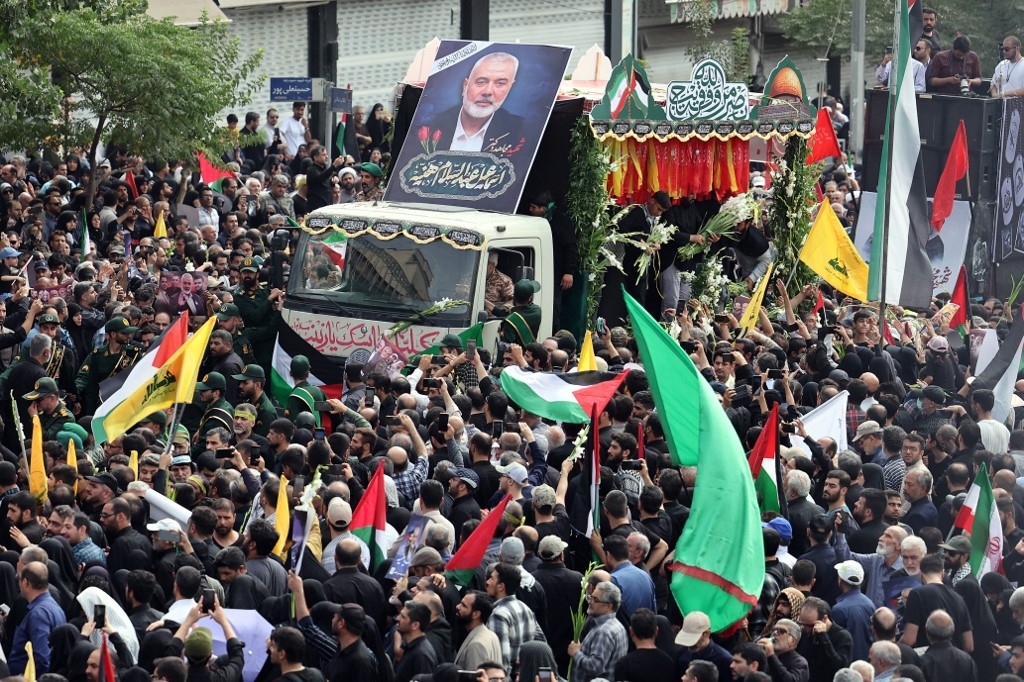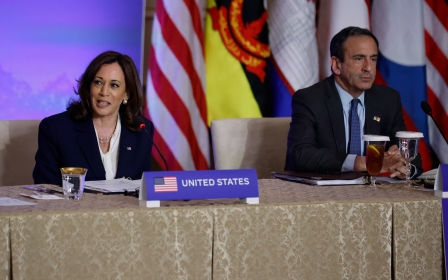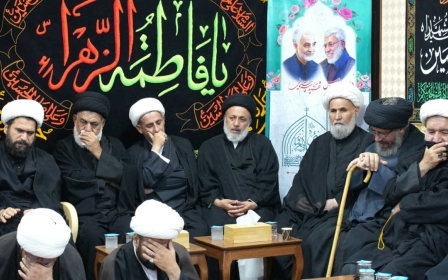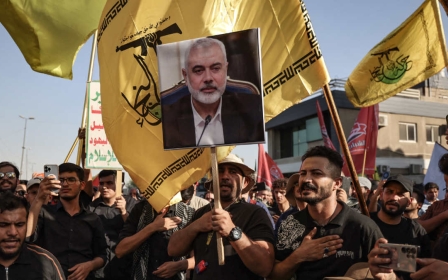Iran arrests dozens in sweeping arrests following Hamas leader's assassination

Iran has arrested dozens of people in the wake of the assassination of Hamas leader Ismail Haniyeh in the capital, Tehran, earlier this week.
Among those arrested are senior intelligence officers, military officials and staff workers at the guest house where Haniyeh was killed.
According to sources familiar with the investigation, speaking to the New York Times, security officials have also targeted Tehran’s international and domestic airports, reviewing months of camera footage from the arrival and departure lounges and examining flight lists.
The sources said the Islamic Revolutionary Guard Corps (IRGC) specialised intelligence unit for espionage is handling the investigation.
Haniyeh's death has provoked an outcry from Palestinians and allies of Hamas and raised concerns about Iran's ability to maintain security within its borders.
New MEE newsletter: Jerusalem Dispatch
Sign up to get the latest insights and analysis on Israel-Palestine, alongside Turkey Unpacked and other MEE newsletters
The IRGC announced in a statement that “the scope and details of this incident are under investigation and will be announced in due course”.
Haniyeh, a veteran Hamas official who had played a key role in talks for a potential ceasefire in Gaza, was killed alongside his long-serving bodyguard, Wasim Abu Shaaban, on Wednesday, hours after attending the swearing-in ceremony for Iran's new president, Masoud Pezeshkian.
On Thursday, the New York Times reported that Haniyeh had been killed by a sophisticated bomb planted in his room some two months earlier.
However, individuals who were in the guest house told Middle East Eye on Friday that the Hamas political chief was killed by a projectile fired at his room.
The IRGC-aligned Fars news agency reported that an investigation indicated that Haniyeh had been “struck by a projectile” and concluded that Israel’s involvement “cannot be ruled out”.
Abdolrasool Divsallar, senior researcher at the United Nations Institute for Disarmament Research (UNIDIR), told MEE that the killing showed Tehran was struggling to maintain "secure communications" and protect foreign dignitaries.
"This was in Iranian territory, there was a huge credibility loss... and it's a sovereignty issue for Tehran," he said.
He added that a "coordinated" response from Iran and its proxies could be forthcoming.
"I think what's important is the quantity and scale of the response and level of coordination, and I think we've not seen a coordinated attack against Israel at the same time," he told Middle East Eye.
Middle East Eye delivers independent and unrivalled coverage and analysis of the Middle East, North Africa and beyond. To learn more about republishing this content and the associated fees, please fill out this form. More about MEE can be found here.




